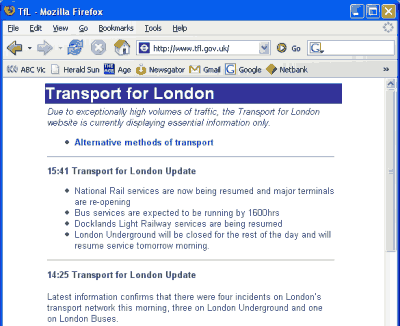The cool thing about starting a new company, or having a child, or even a new project, is that you get to name it.
I fell onto Wikipedia’s list of laws, and found Diana Goodman’s Law, which says that in online discussions between women, eventually someone is accused of not having kids. Goodman is truly horrified by some of the names handed out to kids.
Unlike children’s names, with company names pretty much doesn’t matter what you call them. I’ve got one friend who named his company after a psychedelic drug, another who chose his hobby for a basis and a third after a Futurama character. Others pick some lame set of initials and add ‘consultants’ or whatever on the end. Myself, I went for truth-in-advertising: Intellectual Mercenaries. I was toying around Fictitious Deduction for a while, but rejected it as being a little dangerous in the accounts receivable department.
You’re not going to see truth-in-advertising in Project naming, no project Keeping Up With The Competition, or Dragging This Pile of Bones Kicking and Screaming into The 1990s. Acronyms seem to be very popular, even if a lot of the time the acronym becomes rather forced. Microsoft and Chip companies seem to like US Cities, perhaps because it doesn’t give anything away.
Project naming needs some flair. I suggest Pokemon Characters. I was going to suggest another Japanese franchise, but realised someone’s already gone down that path (sometimes my brain can’t keep up with my imagination).
What memorable namings have you seen (in any of the above categories)?

 The
The